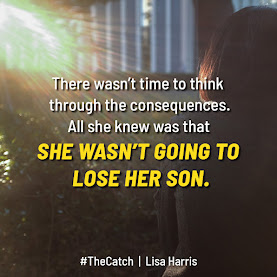
If you love historical fiction, here's a sneak peek from chapter one of An Ocean Away. I'll share part two tomorrow. Enjoy!
CHAPTER ONE
Lizzie MacTavish froze as she watched the giant beast walk across the dusty path in front of her. She crouched in the thick folds of tall grass between Chuma and Esther, her two young African charges, holding her breath until she thought her lungs were going to burst.
The elephant lumbered toward them, close enough that Lizzie could see the infant hidden beneath the gray shadows of the mother’s belly. Close enough to see its long eyelashes that kept out the dust from storms that regularly swept across the plains and the creases in its wrinkled skin, tinged with the brown mud from the African soil.
Finally, Lizzie took a gulp of air, breathing in the sweet scent of the mufufuma tree and its violet blossoms that mingled with the musky odor of the elephant. Overhead heavy clouds gathered, waiting for the first showers of the season to fall. October always brought a change in the activities of village life. The lazy days of winter, with its sharp winds and grass fires, had all but disappeared.
As winter merged into the rainy season, the grasslands presented an abundance of fragrant flowers that perfumed the morning with their sweet smell. Even the trees were laden with scented blooms, mak¬ing up for the humid and sultry air. It was her favorite time of year, when men worked to cut the trees in the fields, and women planted the maize, sorghum, and millet in the fertile soil and harvested pumpkins and ripe forest fruits.
Esther tugged on the melon-colored fabric of Lizzie’s skirt. “Bama will not be happy when she finds out we have wandered past the far pasture and toward the banks of the river.”
Lizzie kept her voice to a low whisper. “Your mother will be busy for hours as she awaits the birth of yet another one of your sisters or brothers.”
A grin spread across Chuma’s face. “My father is praying for a son.”
Lizzie frowned. A son, of course, would be preferred. Daughters were regarded simply as wealth, much like the cattle that were often valued above both wife and child. It was one of the tribal beliefs Lizzie disagreed with. Wasn’t it the woman who stamped the corn, prepared the meals, and bore the children? Even the Holy Scripture said that men and women had been created equal in God’s sight.
“Ma, it’s coming closer.” Esther, who was barely five, nudged Lizzie with her chocolaty brown elbow.
“Shh.” A tremor shook the ground as the massive animal made its way past them, her long tail swatting away the constant barrage of flies.
At the moment, Lizzie felt no need to be concerned for their safety. From the time she could toddle across the swept African soil and out of her parents’ thatched hut, she’d discovered wonderful things like termite hills and dragonflies in the open veld. When she was older, and her father wasn’t busy trying to turn the natives from their wooden objects of worship to the one true God, he’d roamed the banks of the Zambezi River beside her. Here they’d explored the sun-cracked paths and tall grasses where wildebeest and buck roamed the plains that stretched out as far as the eye could see.
In five short months from now, the entire scene would be trans¬formed into one solid expanse of water. The next cycle would bring the swollen river that would drain from the highlands into the flood plains. Then the tributaries could only be traversed by dugout canoes and waterfowl, like the Egyptian geese and the white-marked duck, which hid in the sandbanks as they preyed on the river’s rich food supply.
Lizzie scratched the end of her nose, content with the unexpected lazy day she’d been offered. If the chief wouldn’t allow her to aid in the delivery of his daughter-in-law Posha’s third child, despite her nurse’s training, then she would keep herself busy daydreaming beneath the endless African sky. Here, along the familiar shaded riverbank of the Zambezi, was the one place her foreign heart had found to belong.
The elephant flicked her trunk across a tusk then prodded at her off¬spring. Lying on her stomach in the tall grass, Lizzie raised her head so she could see beyond the elephant and calf to the great Zambezi Valley where herds of zebra and antelope searched for food along the last of winter’s barren land. The distant blue hills were lost in the heavy morn¬ing mist that rose from the river, but soon the sun would rise toward its zenith, melting the steamy vapors while the great plain shimmered in the afternoon heat.
Esther nudged Lizzie again. “A-tu-ende.”
“English, Esther. You will never learn if you don’t practice.” Lizzie eyed the plump girl with her soft clothing made from skin of a lechwe doe and softened her expression. “We will return home soon, but you know you won’t be allowed to see your mother until the baby is born.”
“Bama promised me that as soon as he’s born I can hold him.”
“And you will, but until the little one arrives we must wait,” Lizzie insisted.
Chuma wasn’t convinced. “Bama is strong. The baby will be born quickly.”
Esther jutted out her lips and pointed to the lumbering elephant. “Look, the elephant is leaving, and I’m tired.”
Lizzie pulled the young girl close with one arm and rubbed the dark tuft of hair on the top of her head. “The Bible says that the patient in spirit is better than the proud in spirit.”
Chuma frowned, apparently as bored with the afternoon exertion as his younger sister was. “I’d much prefer the tale about how the hare made the hippopotamus and rhinoceros engage in a tug-of-war, or why the zebra has no horns.”
Esther nodded. “You did promise us a story, Ma, and it will help to pass the time until we are able to see the baby.”
Lizzie stood and shook off the pieces of grass stuck to her skirt. “All right then. If I promised a story, then a story it will be.”
With the elephant moving away, the young siblings followed Lizzie along the winding path toward the village as she assumed her role storyteller. Their tribe had no written literature, but from an early age she’d been captivated by the oral stories. While her father taught her the biblical accounts of David and Goliath, and Moses’ crossing of the Red Sea, she’d sat by the fire night after night, listening to the tribe’s folktales in their native tongue. They were passed down from generation to generation, and she’d never grown weary of the repetition, practicing until she could reproduce the stories herself with all the gestures and eloquence of a skillful narrator.
Lizzie cleared her throat and took the children’s hands in hers before beginning her story. “There came a certain day, when the animals were all gathered together across the vast African plain. There were elephants, warthogs, zebra, buffalo, and every other animal you could think of, all assembled together. Now the time came for the animals to select horns for themselves, so the animals said, ‘Let’s choose our horns.’ And they did. They all ran toward the horns, the elephants, warthogs, zebra, buffalo, and every other animal you could think of, to make their selection.”
Esther squeezed Lizzie’s hand. “What about the kudu?”
“Even the kudu.”
“And the reedbuck?” Chuma asked.
“Yes, even the reedbuck.” Lizzie skipped over a broken limb in the path and smiled. No matter how many times the children heard the tale, they still asked the same questions. “So all the animals ran to select their horns. But the herd of zebra remained behind.”
An eerie trumpeting sounded behind them. Lizzie stopped. She smelled the foul scent of the male elephant before she saw his massive torso. Ears flared back, he ran toward the female and her young. A wave of fear coursed through Lizzie’s body as she squeezed the chil¬dren’s hands. She’d heard stories of the rare occasion when rogue males attacked female elephants—and killed any humans in their path.
A tar-like secretion trickled down the side of its head as the animal stopped and bent down to dig its tusks into the ground. The female, sensing the danger for her and her calf, turned, wavered momentarily, then headed straight toward the three of them.
Dateline: 1921—Northern Rhodesia and New York, New York. Lizzie MacTavis is determined to remain with the people with whom God called her to work along the banks of the rugged Zambezi River in southern Africa.
Andrew Styles, an anthropologist and explorer, has been commissioned to bring Lizzie back to New York City at any cost. With a fortune at stake, Lizzie is caught between two worlds when she is finally forced to return to the United States and discovers her life is in danger. Will Andrew turn out to be Lizzie’s nemesis or hero?
Pre-order here!











































































No comments:
Post a Comment